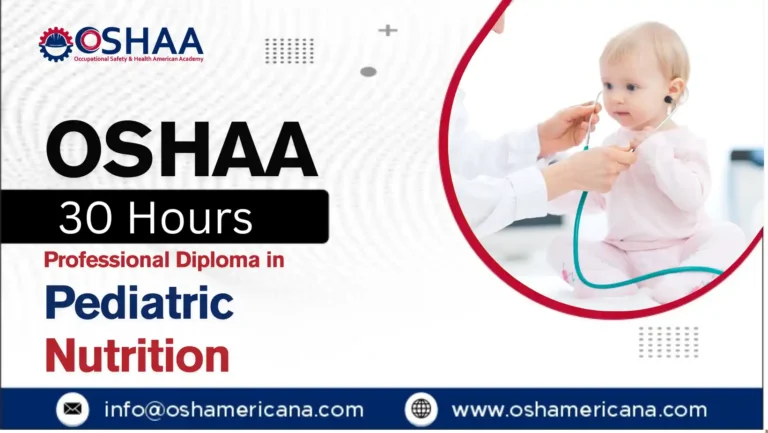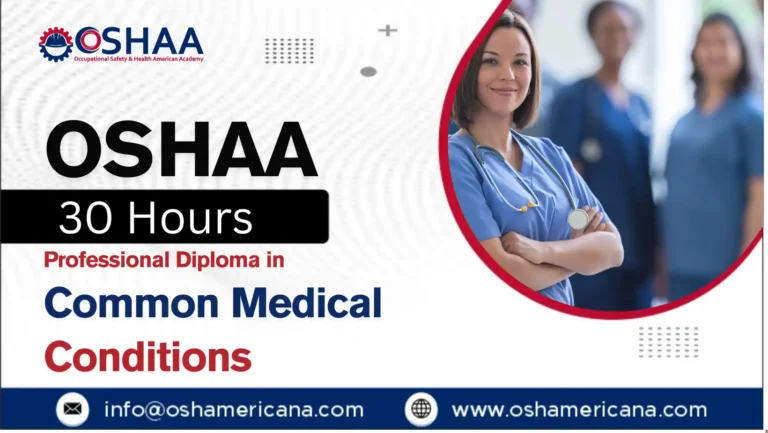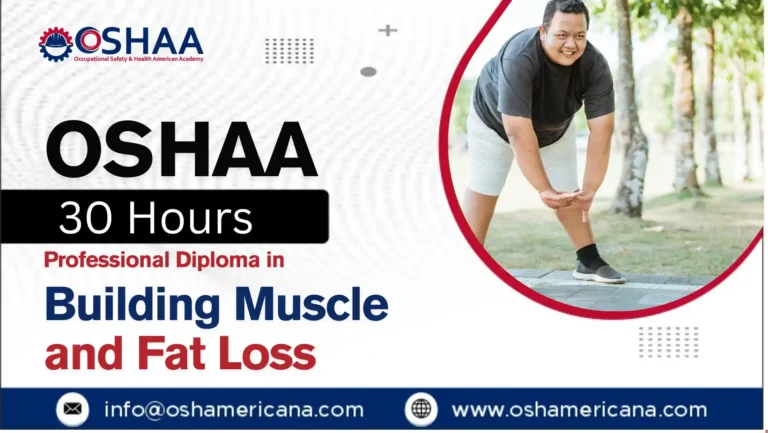In today’s fast-paced educational and therapeutic sectors, professionals working with children must remain updated with the latest approaches to development. The OSHAA 30-Hours Professional Diploma in Motor and Cognitive Development is a specialist course designed to meet this critical need. This programme not only enhances professional competencies but also aligns with evidence-based practices in supporting children’s motor and cognitive growth.
Motor and cognitive development are foundational aspects of a child’s overall growth. Motor development includes both fine and gross motor skills, essential for everyday tasks such as writing, playing, and self-care. Cognitive development refers to the progression of skills like memory, attention, problem-solving, and language. Together, these domains significantly impact academic success, social interaction, and emotional well-being. The OSHAA diploma provides a structured and scientific approach to understanding these developmental areas, equipping practitioners with the skills needed to assess, support, and optimize child development in diverse settings.
The OSHAA 30-Hours Professional Diploma in Motor and Cognitive Development is a vital investment for professionals committed to making a meaningful difference in children’s lives. With its focus on practical skills, up-to-date research, and global best practices, this course ensures that participants are well-equipped to meet the challenges of modern child development support.
Whether you are aiming to enhance your existing skills or embark on a new career path, this diploma offers a comprehensive and rewarding opportunity to grow your expertise and impact.
OSHAA 30-Hours Professional Diploma in Motor and Cognitive Development
Study Units
Learning Outcomes
Foundations of Motor and Cognitive Development (3 hours)
- Understand the basic principles of motor and cognitive development in early childhood
- Explain the interrelationship between physical and cognitive growth
- Identify key factors influencing developmental outcomes
- Recognise the role of early experiences in shaping developmental trajectories
Neurodevelopmental Milestones and Child Growth Patterns (5 hours)
- Identify age-appropriate developmental milestones across key domains
- Differentiate between typical and atypical growth patterns
- Analyse developmental progress using standardised frameworks
- Apply milestone knowledge to monitor child development effectively
Fine and Gross Motor Skills: Development, Assessment, and Support (4 hours)
- Distinguish between fine and gross motor skill development
- Conduct basic assessments of motor proficiency in children
- Identify signs of motor skill delay or dysfunction
- Implement age-appropriate activities to support motor skill acquisition
Cognitive Functioning and Executive Skills in Early Childhood (4 hours)
- Understand core components of cognitive development
- Describe the emergence and role of executive functions in young children
- Recognise the influence of cognitive development on behaviour and learning
- Apply strategies to promote attention, memory, and problem-solving skills
Sensory Integration and its Role in Development (6 hours)
- Explain the theory of sensory integration and its developmental relevance
- Identify common sensory processing difficulties and their impact
- Evaluate sensory behaviours in various child settings
- Plan basic sensory-based interventions to support participation and learning
Identifying and Supporting Developmental Delays and Disorders (4 hours)
- Recognise early warning signs of developmental delays and disorders
- Understand the classification and characteristics of common developmental conditions
- Apply screening tools to support early identification
- Collaborate with families and professionals to create supportive plans
Designing and Implementing Intervention Strategies (4 hours)
- Develop targeted intervention strategies for motor and cognitive challenges
- Adapt interventions to suit individual needs and developmental levels
- Integrate evidence-based practices into intervention planning
- Evaluate the effectiveness of strategies through observation and feedback
- Gain in-depth knowledge of key developmental principles that influence motor and cognitive growth in children
- Enhance your ability to identify typical and atypical development through observation and structured assessment
- Develop practical skills for supporting children with developmental challenges in both educational and clinical environments
- Learn to apply evidence-based strategies to promote motor coordination, sensory processing, and cognitive functioning
- Strengthen your professional profile with a recognised diploma relevant to education, healthcare, and child development sectors
- Improve collaboration with multidisciplinary teams, including therapists, educators, and families
- Build confidence in creating and implementing personalised intervention plans tailored to individual child needs
- Benefit from flexible, practitioner-friendly learning designed to accommodate busy professional schedules
- Stay current with best practices and research-informed approaches in developmental support
- Receive a certificate of completion that supports continuing professional development (CPD) and career advancement
The OSHAA 30-Hours Professional Diploma in Motor and Cognitive Development is designed for individuals working with children across a variety of educational, clinical, and care settings. It is ideal for professionals who seek to deepen their understanding of child development and apply practical strategies to support motor and cognitive growth.
This course is particularly suited to:
- Early years practitioners and nursery staff
- Primary school teachers and SENCOs (Special Educational Needs Coordinators)
- Paediatric occupational therapists and physiotherapists
- Speech and language therapists
- Educational and developmental psychologists
- Learning support assistants and teaching aides
- Childcare providers and developmental therapists
- Health and social care professionals working with children and families
- Parents and caregivers looking for a structured, professional understanding of developmental needs
Whether you are new to the field or looking to expand your expertise, this diploma provides essential knowledge and practical tools to enhance your professional impact.







